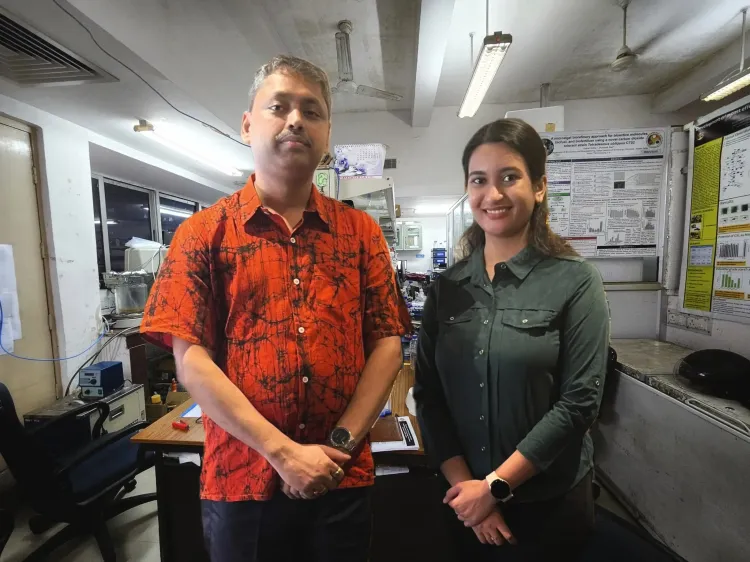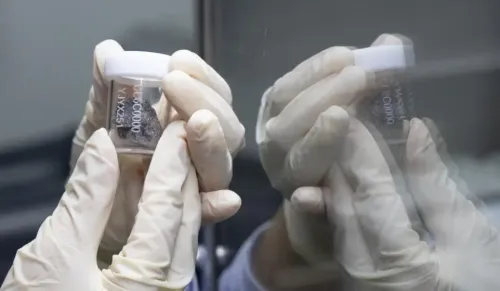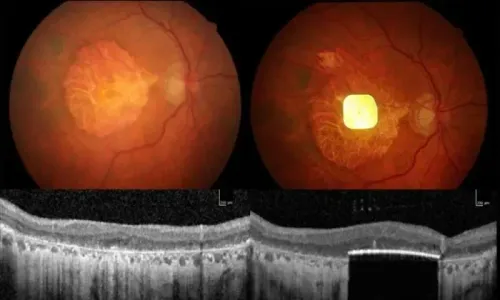IIT Guwahati Unveils Innovative Technology for Biofuel Production from Methane and CO2

Guwahati, Dec 9 (NationPress) Researchers at the Indian Institute of Technology (IIT) Guwahati have pioneered an advanced biological technique for converting methane and carbon dioxide (CO2) into cleaner biofuels through the use of methanotrophic bacteria.
This cutting-edge method addresses two critical global issues: the detrimental environmental effects of greenhouse gases and the diminishing reserves of fossil fuels, marking a significant advancement toward sustainable energy solutions and climate change mitigation.
Methane, a greenhouse gas that is 27-30 times more potent than CO2, is a major contributor to global warming. Converting methane and CO2 into liquid fuels can diminish emissions and provide renewable energy; however, conventional chemical methods are often energy-intensive, costly, and produce toxic by-products, restricting their scalability.
The research team at IIT Guwahati devised a fully biological process utilizing Methylosinus trichosporium—a species of methanotrophic bacteria—to transform methane and CO2 into bio-methanol under mild operational conditions.
In contrast to traditional chemical processes, this innovative approach eliminates the requirement for costly catalysts, avoids toxic by-products, and operates in a more energy-efficient manner.
“This research represents a breakthrough, demonstrating that bio-methanol, produced from bacteria that consume methane and carbon dioxide, can serve as a feasible alternative to fossil fuels,” stated Prof. Debasish Das from the Dept. of Biosciences and Bioengineering at IIT Guwahati.
“Our method, unlike conventional biofuels that depend on crops and create competition with food production, utilizes greenhouse gases, thus avoiding the 'food vs. fuel' dilemma. It presents an environmentally and economically viable solution by employing inexpensive resources while aiding in emissions reduction,” Das added.
The innovative two-stage method encompasses the capture of methane to produce bacteria-based biomass, which is then utilized to convert carbon dioxide into methanol.
The team further refined the process using advanced engineering techniques to enhance gas solubility, resulting in significantly increased methanol yields.
The produced bio-methanol was mixed with diesel (in 5-20 percent ratios) and tested in a four-stroke diesel engine. Findings, published in the journal Fuel, indicated up to an 87 percent decrease in carbon monoxide, hydrocarbons, hydrogen sulfide, and smoke emissions.
Diesel-methanol blends also surpassed pure diesel in fuel efficiency, energy performance, and engine functionality while maintaining comparable mechanical efficiency.
The process holds tremendous potential for decarbonizing essential sectors, including oil and gas, refineries, and chemical production, paving the way for a more sustainable future, according to the researchers.









